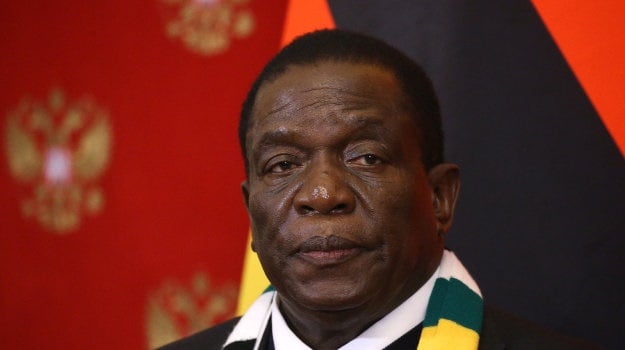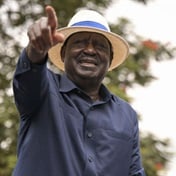
- Sanctions against Zimbabwe are to stay in place because the US believes the ruling party undermines the country's democratic processes.
- Zanu-PF has called the sanctions vindictive because of Zimbabwe's land reform programme from the turn of the millennium.
- The sanctions fly in the face of President Emmerson Mnangagwa's efforts to charm the American government.
The United States (US) has extended its sanctions on Zimbabwe, a month after the European Union (EU) did the same.
In a statement, US President Joe Biden said this was done because Zimbabwe's gross human rights and democratic principles disregard are a threat to the US' foreign policy.
Biden wrote:
"For this reason, the national emergency declared on March 6, 2003, and the measures adopted on that date, on November 22, 2005, and on July 25, 2008, to deal with that emergency, must continue in effect beyond March 6, 2022. Therefore, in accordance with Section 202(d) of the National Emergencies Act (50 U.S.C. 1622(d)), I am continuing for one year the national emergency declared in Executive Order 13288," reads Biden's statement to US Congress.
In 2001, the US Congress passed the Zimbabwe Democracy and Economic Recovery Act (Zedera) to provide for a transition to democracy and to promote economic recovery.
In its justification, the US said: "President Emmerson Mnangagwa has not made the necessary political and economic reforms that would warrant terminating the existing targeted sanctions programme."
The US also noted that opposition politicians and journalists herald people who bore the brunt of violence from the state.
"Throughout the last year, government security services routinely intimidated and violently repressed citizens, including members of opposition political parties, union members, and journalists."
Biden said:
The renewal came a week after the Citizens Coalition For Change (formerly the MDC Alliance, led by Nelson Chamisa) faced political violence that claimed the life of its supporter in Kwekwe. Mboneni Ncube was stabbed three times and died upon arrival at a hospital.
It was also reported that 22 coalition supporters landed in the hospital for critical injuries.
Responding to Ncube's death, Amnesty International's deputy director for southern Africa, Muleya Mwananyanda, said it was a well thought out plan by the ruling Zanu-PF.
"This assault bears all the hallmarks of a premeditated attack that aims to intimidate political opposition and block access to their constituents," he said.
Some of the most notable figures on the US sanctions list are Zanu-PF benefactor Kudakwashe Tagwirei – widely accused of state capture and enabling Zanu-PF financially – as well as former state security minister Owen Ncube, ex-minister Sydney Sekeramayi, Defence Minister Oppah Muchinguri, party stalwart Patrick Chinamasa, and exiled Saviour Kasukuwerem, an ally of deceased former president Robert Mugabe.
Zanu-PF spokesperson Christopher Mutsvangwa said the sanctions are a non-event which is "vindictive" because of Harare's stance on the land reform programme.
The renewal flies in the face of President Emmerson Mnangagwa's re-engagement charm offensive that saw him enlist the services of US lobby firm Mercury Public Affairs, whose contract until the end of 2021 was worth around R1 374 000 (US$90 000) per month.
The News24 Africa Desk is supported by the Hanns Seidel Foundation. The stories produced through the Africa Desk and the opinions and statements that may be contained herein do not reflect those of the Hanns Seidel Foundation.




 Publications
Publications
 Partners
Partners























